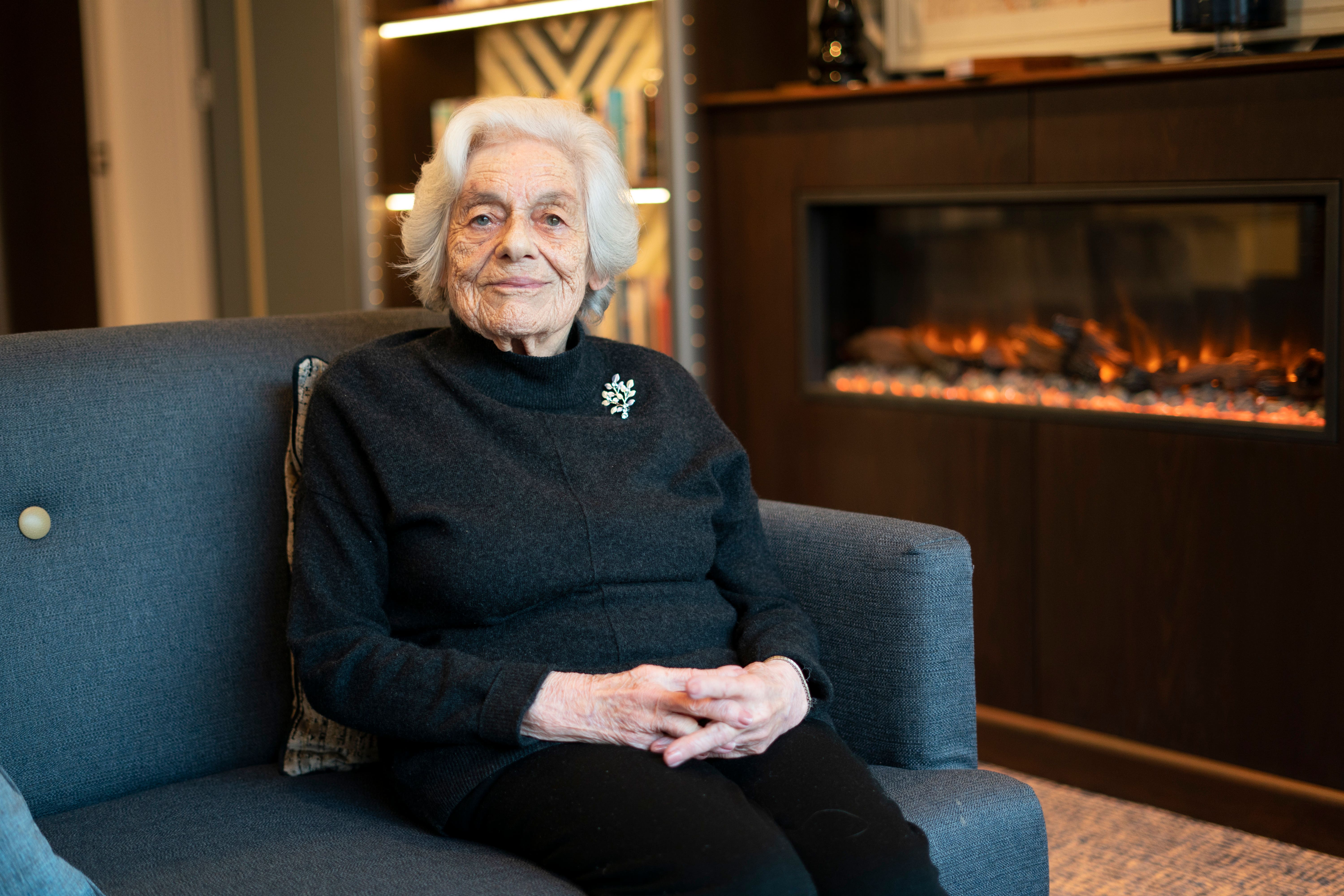Antisemitism rising because of a lack of Holocaust education, survivor says
Vera Schaufeld fled Nazi-occupied Europe as a child and stressed the importance of continuing to speak out.

Your support helps us to tell the story
From reproductive rights to climate change to Big Tech, The Independent is on the ground when the story is developing. Whether it's investigating the financials of Elon Musk's pro-Trump PAC or producing our latest documentary, 'The A Word', which shines a light on the American women fighting for reproductive rights, we know how important it is to parse out the facts from the messaging.
At such a critical moment in US history, we need reporters on the ground. Your donation allows us to keep sending journalists to speak to both sides of the story.
The Independent is trusted by Americans across the entire political spectrum. And unlike many other quality news outlets, we choose not to lock Americans out of our reporting and analysis with paywalls. We believe quality journalism should be available to everyone, paid for by those who can afford it.
Your support makes all the difference.A 92-year-old Holocaust survivor said antisemitism is on the rise because young people are not learning about the Holocaust as much anymore.
Vera Schaufeld came to England via the Kindertransport, a movement that was set up to evacuate Jewish children from Germany in the wake of Kristallnacht – a night of Nazi-coordinated violence in November 1938 which resulted in the destruction of hundreds of synagogues and Jewish properties across the German Reich.
I think that unfortunately, antisemitism is more prevalent than it has been in the past because I think young people are no longer learning about the Holocaust as much as they did
Her parents remained in what was then Czechoslovakia and were sent to a concentration camp where they were later murdered.
Speaking ahead of Holocaust Memorial Day, she said Jewish people should be treated as individuals instead of as a whole group and that it is important to continue talking about Nazi genocide to remind people of where antisemitism can lead.
She told the PA news agency: “I think that unfortunately, antisemitism is more prevalent than it has been in the past because I think young people are no longer learning about the Holocaust as much as they did.
“Jewish people should be seen just as much as individuals, and not as a whole group, but understood that they have their own views and their own lives in the same way that every other minority has to be respected.
“And it has to be understood that their experiences and their lives are relevant to them and their families.”
Vera, who lives in north London, was born in Prague in 1930 and grew up in the small town of Klatovy just south of the Czech capital.
Her father was the head of the Jewish community in the town while her mother was of German origin and her grandmother moved in with the family from Germany in 1934 to avoid Nazi persecution.
Vera came to England soon after the occupation of Czechoslovakia and lived with a foster family in Bury St Edmunds, Suffolk. Her parents hoped to join her but were unable to secure a visa.
She said of her school life in Europe: “Our teacher said, ‘When there’s trouble, the Jews are the first to run away’ and I was devastated because I liked my teacher.
“And suddenly, I wasn’t Vera anymore. I’d become the Jews. And I think that statement of not seeing me as an individual certainly influenced my life.
“I got a letter from the Red Cross telling me that none of my family had survived. And I imagined, maybe this is what had happened to my family, that’s why they weren’t alive anymore. I just had to get on with the rest of my life.
“I learned later that what had actually happened was that my grandmother and my parents were taken to a camp in Czechoslovakia, which was called Theresienstadt.
“My grandmother had actually met her sister from Germany and the two of them both died of starvation by 1944.
“My parents were taken to a camp in Poland called Trawniki and that was a camp for training guards how to deal with Jews.
“And then after a time, when the German army began to advance in Poland, my parents, I think, had to dig their own graves and were shot and everybody in that camp was murdered. Nobody survived.”
Vera eventually trained as a teacher and spent some time in Israel where she met her husband Avram on a type of communal farm known as a Kibbutz.
They both returned to England where Vera continued teaching and she has since shared her testimony in schools and colleges.
In 2018 she was made MBE for services to Holocaust education.